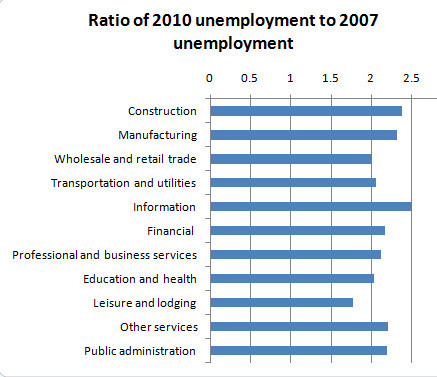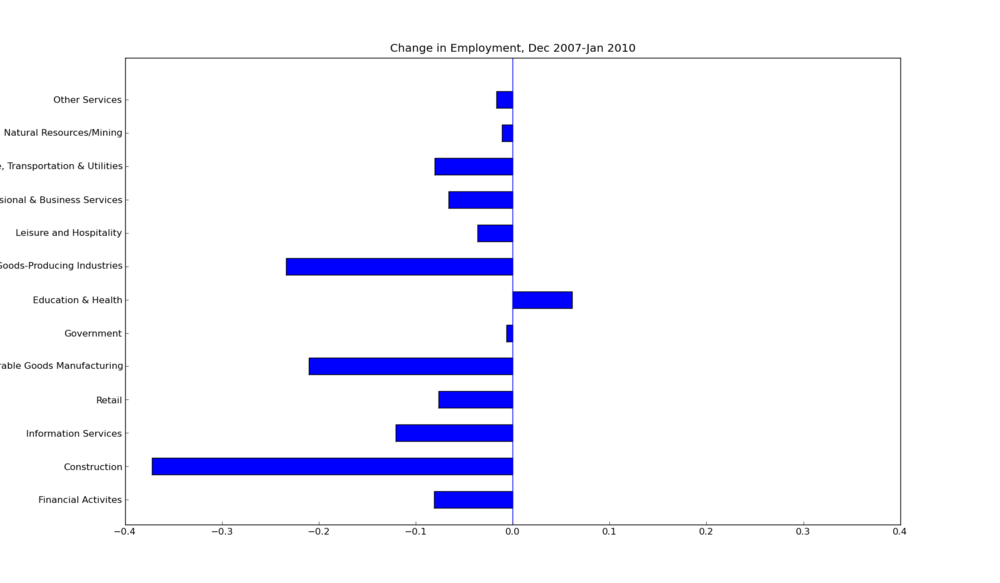It's becoming a more or less accepted economic theory that a large part component of our current recession is structural. This means that during the housing bubble we had lots of people in housing related jobs (construction worker, realtor ), but once the bubble burst those jobs ceased to exist, and the people formerly employed in them have not found new work. So in short, if the recession is structural, then patterns of employment before and after the recession will be very different. We would expect a lot of job losses in construction (the epicenter of the bubble), but very few job losses in health care (which had nothing to do with the bubble).
Paul Krugman set out to measure this. But he does so in a very curious way. Rather than actually looking at the number of people employed in each sector, before and after, he instead looks at the ratio of unemployed people who formerly worked in that sector to the current employment in that sector. He obtains this chart:

But this is a really curious way to look at things. For example, if the employment situation in construction is so bad that former construction workers are becoming discouraged workers, they will be completely excluded from Krugman's numbers. And if a person formerly employed as a construction worker gets a job in "Other Services", this will similarly undercount construction unemployment. I'm not really sure why Krugman did it this way - perhaps he believes the two error contributions I mentioned don't occur to any significant degree?
Instead, I decided to look at employment - just a simple count of how many people are currently working in each of these sectors. I got all my data from the Fred2 Database. These are the results.

That's interesting - it looks like job losses in construction and manufacturing are huge! In contrast, job losses in finance or business are much smaller, government is flat, and health and education have actually gained jobs! That looks exactly like what the structural recession people are predicting.